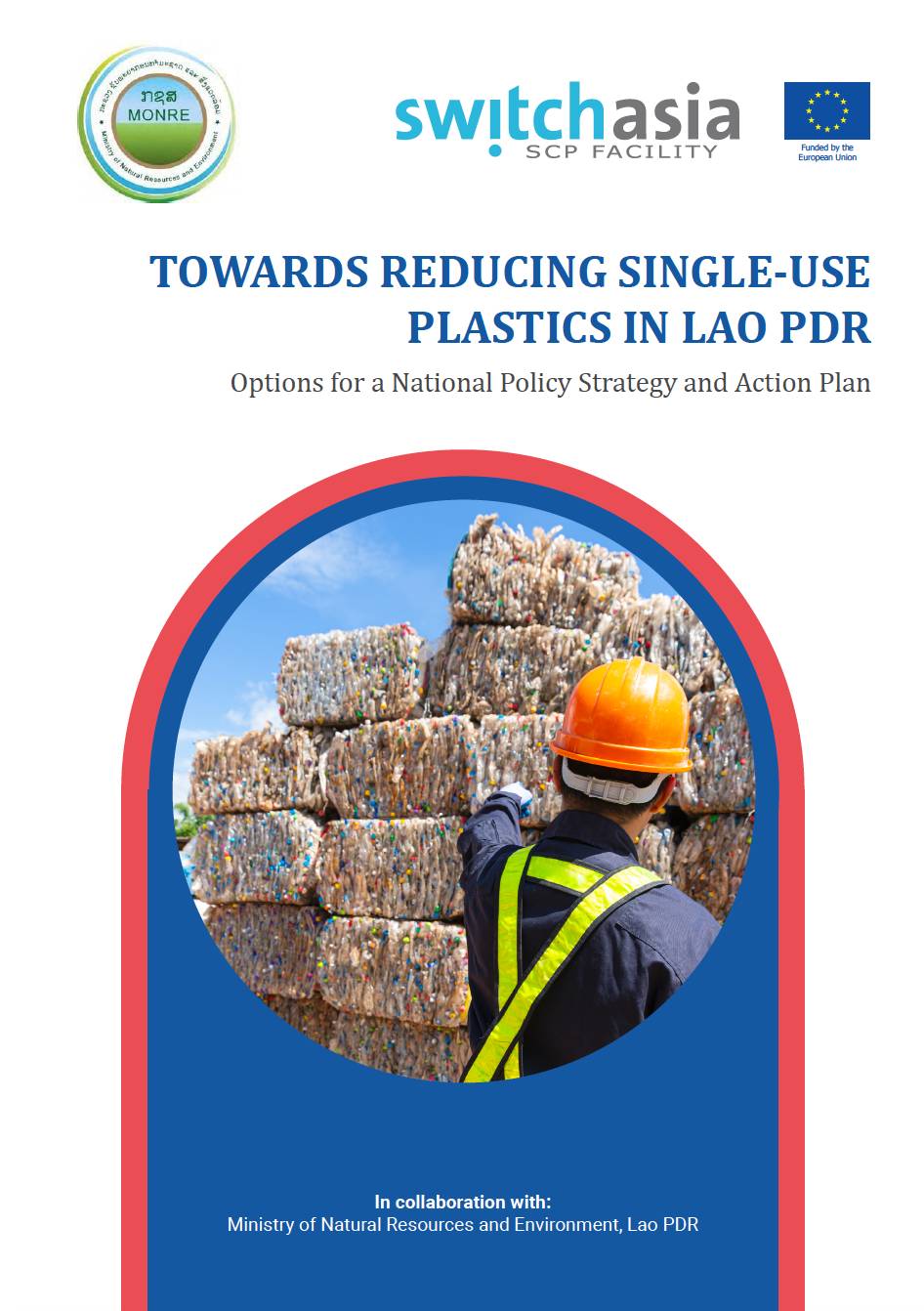
The Lao People’s Democratic Republic (Lao PDR) is facing new challenges as a result of changing patterns in consumption and production, which are resulting in higher volumes of waste and an increasingly complex waste stream. Plastics are a large and increasing component in waste streams, particularly those used in packaging.
Many plastic items are single-use products such as bottles, food packaging and carrier bags, which are designed for a short life span. Lao PDR does not currently possess comprehensive policies around sustainable production and waste management, has limited public awareness over issues with inappropriate use and waste disposal, and lacks services and infrastructure to collect, sort, and safely process post-consumer wastes. Moreover, a large amount of waste plastic is inappropriately disposed of, mismanaged or leaked out of supply chains, resulting in environmental, social, and economic impacts.
Against this background, the Lao Ministry of Natural Resources and Environment (MoNRE) requested assistance from the European Union, through the SWITCH-Asia programme, to assess the current situation with regards to single-use plastics (SUPs) and to identify suitable policy options. Responding to this request, a study was conducted, consisting of a literature review, an assessment of policy experiences from other countries, and a series of interviews with stakeholders and experts in Lao PDR. These interviews explored participants’ experience, knowledge and viewpoints on plastics in Lao PDR. Consultations were held with various stakeholders, including government, non-governmental organisations (NGOs), research institutions, and the public, to achieve a representative view from a range of perspectives.
This report presents the findings of that study and is expected to serve as an input to a multi-stakeholder process to develop a National Action Plan on plastics.


